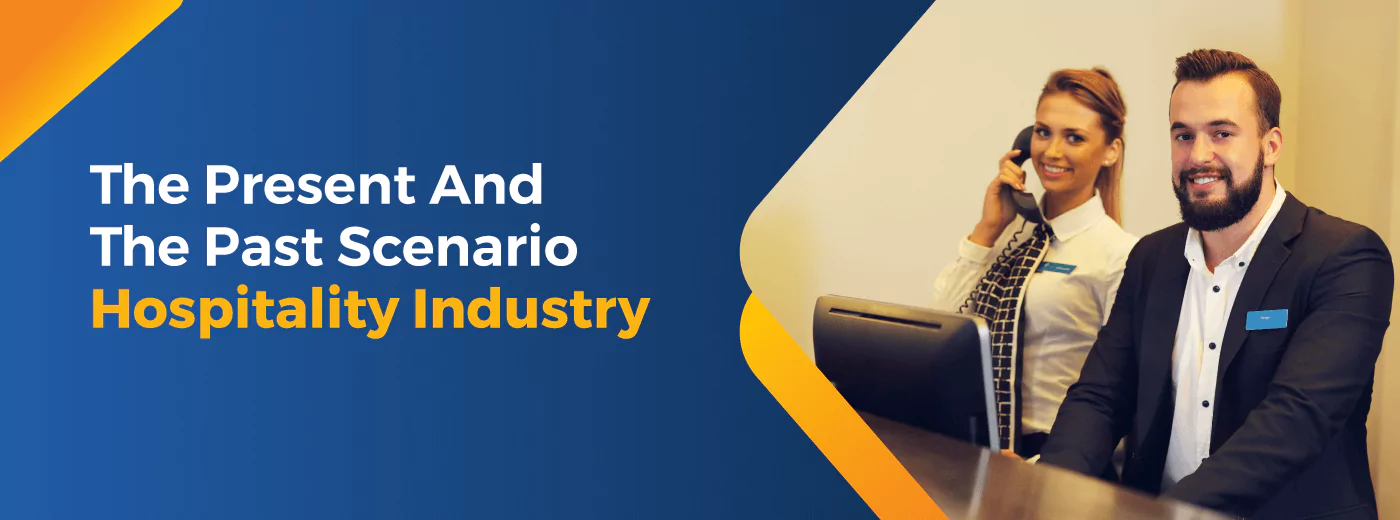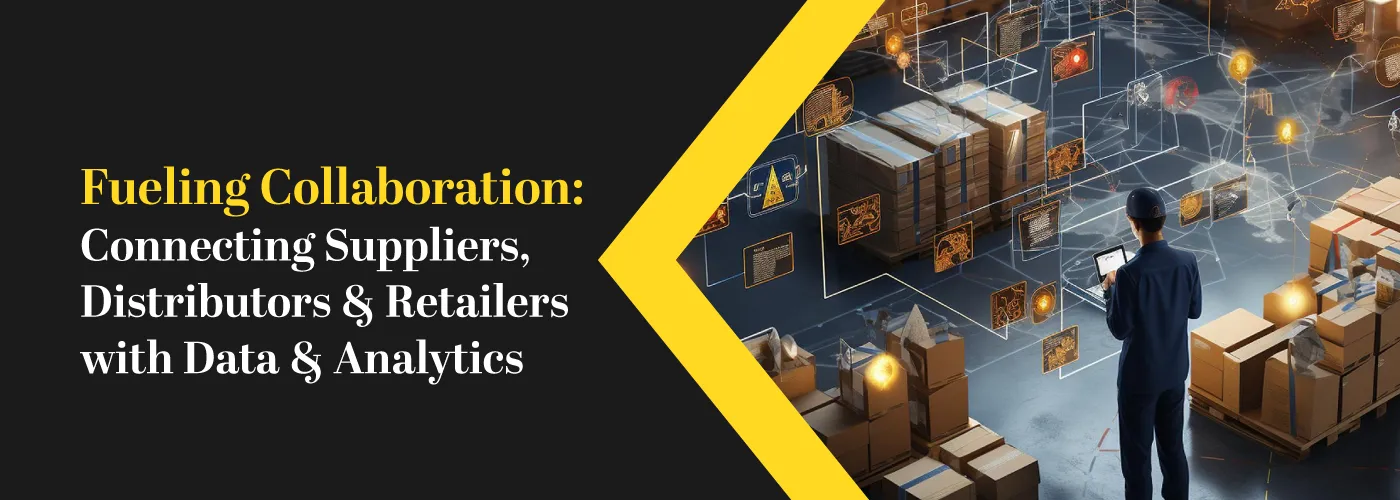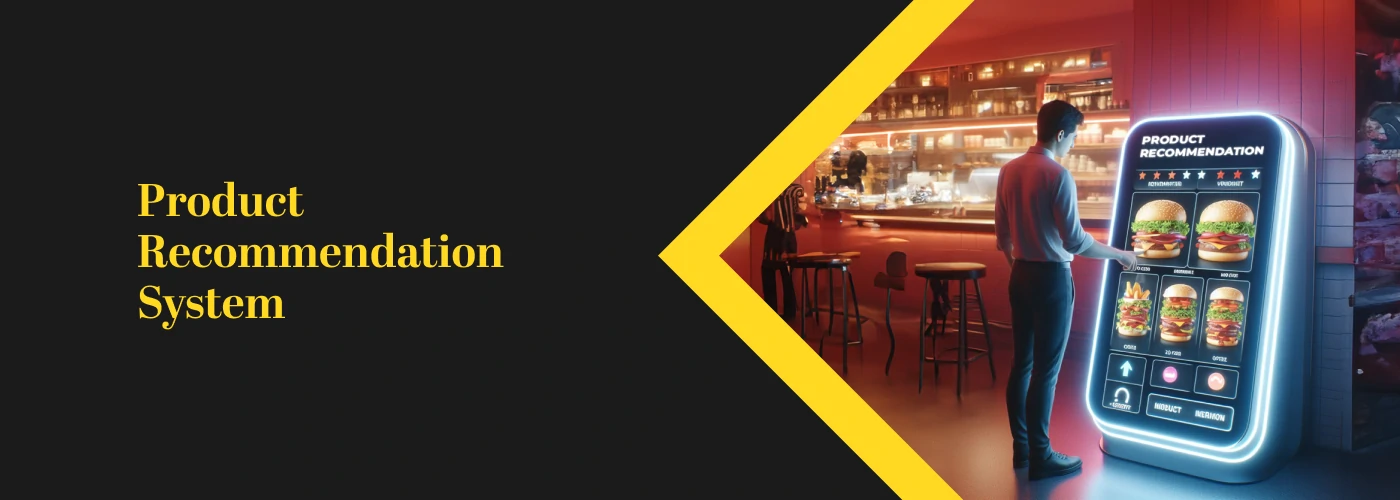Last Updated : 23-June-2023
Editor's Note: In an era where data-driven decision-making is becoming increasingly crucial, this article sheds light on how analytics is transforming the way the hospitality industry operates, providing them with a competitive edge and enhancing the overall guest experience.
Introduction
The World Health Organization, on 30th January 2020, declared Coronavirus (COVID-19) a global health emergency as concerns grew around its potential spread to other countries, especially those with weaker healthcare systems.
Over the past few months, Coronavirus, now globally carrying the status of a pandemic, has brought the hospitality industry to a virtual standstill. The industry has never experienced a sudden downturn. While we are talking about the reeling impact of the virus on human life, the massive disruption in the Hospitality industry is also worth mentioning.
According to a special forecast from STR and Tourism Economics, due to the COVID-19 outbreak, the hotel industry is projected to report significant declines across demand, occupancy, ADR, and revenue per available room (RevPAR) in 2020. While travel has come to a halt due to the pandemic, the market is expected to regain its footing in the latter part of the year and next year.
With such heavy impacts, the hospitality industry will have to learn to function and revive from this crisis in a better way. The first step in overcoming this crisis is building relationships and trust to regain customer confidence. New practices will be put in place to monitor and control the environment in which the business takes place.
Communication should take the lead role in reaching out to the customers in a gentle and non-aggressive manner to reassure them of the safety of their decision to start traveling again. Promoting the business should be done in a positive manner, showing the benefit to the customer and providing the travelers with a light at the end of the tunnel. The players of the industry should consider how to emotionally and sensitively receive the travelers once confined in their homes after the lockdown is lifted.
So, due to the heavy worldwide impacts of COVID-19, humanity shall walk into a new era of a post-crisis world which will require the players of the industry to adapt their approach toward the new traveler. This will allow for new concepts to be developed aiming to benefit the society in need of emotional retreats and focusing on psychological wellbeing.
The Scenario Before Coronavirus Pandemic
The hospitality industry is going through a very interesting phase of growth and transformation. The last decade has been characterized by steady growth, and according to Deloitte's travel and hospitality industry outlook, analysts forecast that this trend will continue for the coming years, though not every organization might be able to keep pace and the least innovative brands will be driven out of business.
Traditionally, the products and services offered in the hospitality industry have been characterized by a high level of homogeneity. As a result, the competition in this vertical has always been intense, and this explains why hospitality executives spend so much of their energies trying to increase customer experience and satisfaction.
According to Dimension Data’s 2019 Global Customer Experience Benchmarking Report, 88% of brands now recognize customer experience as a competitive differentiator, and in fact, 87% can prove increased customer loyalty from it, and more than two-thirds say it increases their revenue/profits.
According to the CX Benchmarking Report, improving and competing on customer experience, analytics has been named the top factor to reshape the customer experience for the fourth year in a row. Yet many brands still seem to be behind when it comes to leveraging it.
Further, the rise of new community-based online platforms has made the competition even harsher. Analysts describe the context of today's tourism, travel, and hospitality industry as hyper-competitive and characterized by various advantages such as - business operations, marketing strategies, occupancy rates, and more. It should be kept continuously under the eye or will be ripped away by more innovative brands.
The key to getting and sustaining competitive advantages is Data Analytics. Indeed, travel and hospitality companies have access to vast amounts of data that, if analyzed properly, provides meaningful and actionable insights that can radically reshape a company's strategy. Data Analytics is a platform that helps hospitality companies to reframe key questions about the way they research, collect and use the information and gives them the power to act based on live metrics and real-time data.
Let's Look At Some Of The Use Cases In The Hospitality Industry
1. Using Analytics in Customer Segmentation
It is very significant for hotels to target small customer segments like – tour groups or business travelers to understand why, when, and where they're traveling. In the current scenario, it is vital to conduct more effective and personalized marketing campaigns to serve customers in a better way.
Analytics makes it easy for hospitality organizations to analyze customer data by seamlessly connecting all touchpoints, including - call centers, website browsing, social media interactions, and mobile app usage. With Analytics, users can quickly evaluate customer data related to - complaints, revenue, demographics, marketing offer responsiveness, etc. The valuable insight extracted can be utilized by hotels to segment customers for – predicting customer defection, and marketing programs, determining which areas to invest resources in, and personalize every interaction. By enabling analytics hospitality organizations can be proactive with customer relationships. Overall, analytics can help hospitality organizations to acquire new customers, retain existing ones, and maximize customer lifetime value.
2. Utilizing Analytics in Channel Bookings
The hospitality organizations have struggled a lot without well-defined insights on channel bookings (OTA, GDS) such as - optimizing conversions, ancillary revenue for each channel, and retention.
With Data and analytics in place, organizations can combine data across numerous channels and customers, discover hidden insights, and pursue strategies to improve each touchpoint across the business. This insight can be used to determine a hotel's optimal channel mix, specifically designed to increase - retention, inventory, and key metrics on customer acquisition. Equipped with the advantage of knowing how channels perform with various customer segments, the Analytics platform is beneficial to achieve an edge over the competition.
3. Leveraging Analytics for Reporting and Reservation Operations
With the massive amount of data, hospitality organizations are facing challenges in reservation operations, red-flag issues, and reporting. Leveraging analytics can help process an incredible amount of data from disparate systems, turning it into actionable insight, in real-time.
With robust, enterprise-grade analytics, organizations can focus on key areas of the reservation process such as - number of reservations vs. cancellations; detailing the key metrics for the average reservation; gaining insight into the ratio of room cancellations that were charged a penalty; identifying potential weaknesses or vulnerabilities in the hotel reservation policies; and drilling down to uncover factors and trends relating to cancellations.
4. HR Analytics for Better Management
Hotel organizations are observing that an hourly workforce represents the largest controllable expense of hotels, restaurants and private clubs. The organizations come across challenges related to complex work shifts, due to which a large amount of data is that is generated yet not applied to future labor planning algorithms.
With HR analytics in place, the prime goal of HR analytics is to enable management to apply fact-based data to labor-related decisions in an effort to reduce costs, improve productivity, and enhance profitability.
5. Streamline Analytics in Loyalty Programs
In the current scenario, customers are more devoted to a particular brand, and they expect a higher level of personalized services. Hospitality organizations are facing challenges in capitalizing on opportunities to reward/engage their loyal customers before they lose to the competition.
With analytics into the system can help hospitality organizations with a unified, singular view of each customer's identity – integrating data from marketing channels and sales. With this ability, organizations can easily prioritize services, putting the most valuable customers at the front of the line. Analytics capabilities make it simple for hospitality organizations to build dashboards to gain insight into user preferences at any location, in real time. It also helps sales and service associates to deliver a more personalized user experience to customers for a high-valued VIP experience.
For instance, Marriott Hotel saw greater benefits of growing loyalty program membership, which now stands at 120 million members around the world, reduced charge-out rates, higher luxury redemptions and a growing proportion of bookings from our direct channels.
6. Safety and Security
Hospitality organizations are dealing with one of the key issues related to safety and security. It's an issue if not taken in a professional and detailed way can have financial repercussions and negatively impact an organization's brand. It is very significant for hospitality organizations to comply with mandated security measurements and training to mitigate risk and guarantee a healthy and safe work environment.
By deploying analytics, organizations can streamline facial recognition check-ins and compliance management processes to improve - safety, strive to protect guests from harm and stay up to date with industry regulations. With analytics, an organization can have a 360-degree view of security; users can monitor - incidence reports, hotel security systems, employee attendance of safety training classes, and regulation discrepancies – all analyzed from a single dashboard, and in real time.
In the event of an - incident, compliance issue, or maintenance issue, hotel employees can directly log information related to safety violations, submit a related photo, and provide related comments and annotations.
Conclusion
Therefore, these are just some of how the hospitality industry is using data analytics to power its decisions. Increasingly, the ability to use analytics to make better decisions is becoming a vital source of competitive advantage. In-depth customer insights generated through effective use of data analytics are leading to improved customer satisfaction, an unforgettable experience and thereby increased profits in the hospitality industry.



